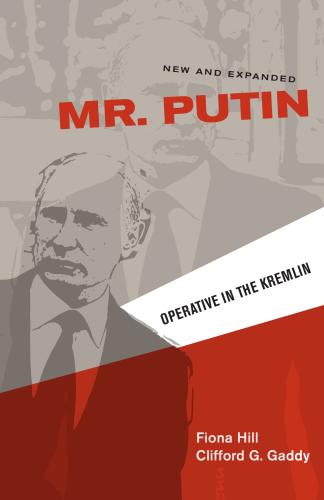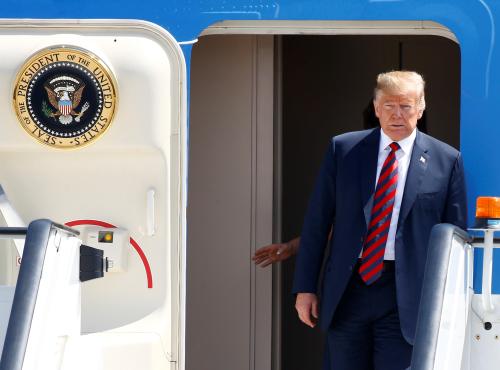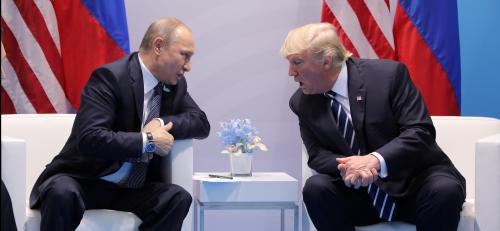In his eagerness to pursue better relations with Russian President Putin—for example, by casting doubt on his own intelligence community’s conclusion that Russia interfered in the United States election to help President Trump win—Trump has given more ammunition to those in government who seek to constrain him, argues Alina Polyakova. This piece originally appeared in The Atlantic.
Trump tried to walk back his disparagement of the U.S. intelligence community, but his confusing statement (“I meant to say wouldn’t, not would”) is unlikely to convince his critics. That’s because Trump, even before he was president, has been very consistent in his positive view of Putin and desire to “get along” with Russia. Contrary to his stated desires, however, his administration (with pressure from Congress) has pursued an assertive deterrence policy on Russia. The gap between the president’s pro-Russian rhetoric and his administration’s hawkish policies has grown over the course of Trump’s term, and is now poised to grow further still.
After all the anticipation, the Helsinki meeting was an opportunity for Trump to try to close the gap between his desires and his administration’s policy. And, flying high from what Trump saw as a successful meeting with Kim Jong Un last month—a meeting he also accepted against the recommendation of his advisers—he could well have succeeded. Instead, with his dismal performance, Trump shot himself in the foot. Even some of his usual supporters seemed to have turned on him. Newt Gingrich, usually a staunch defender of the president, tweeted that Trump made “the most serious mistake of his presidency,” which “must be corrected—immediately.”
For Trump, then, the summit was not only an embarrassment; it also may have locked him into a more hawkish Russia policy. Indeed, by Wednesday he was telling the press that “there’s been no president, ever, as tough as I have been on Russia.” Amid swirling speculations on the motivations behind Trump’s behavior—whether that be genuine admiration for strongmen, ignorance, or kompromat—he’s making it more difficult to turn his Russia-friendly inclinations into policy.
The Brookings Institution is committed to quality, independence, and impact.
We are supported by a diverse array of funders. In line with our values and policies, each Brookings publication represents the sole views of its author(s).








Commentary
Trump has trapped himself into cracking down on Russia
July 19, 2018